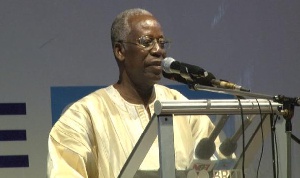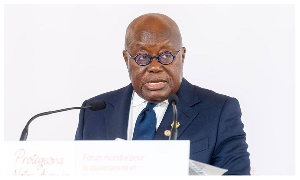Founder of the African University College of Communications (AUCC), Kojo Yankah, fears the Sinohydro agreement between Ghana and China may culminate in Ghana losing the entire Atewa forest to China.
The former Minister who served under former President Jerry John Rawlings made this observation when he gave a keynote address at this year’s Institute of Public Relations (IPR) week launch in Accra Tuesday, September 18.
Speaking on the theme “deriving value from values, a test for corporate governance” he expressed worry that Ghana may lose the entire forest to the Chinese.
“It is not just the land, there will be a time when I’m sure there will be police guard in the area, no Ghanaian should enter there because it doesn’t belong to us. It is happening in other African countries, that’s where my concern is”, he said.
Parliament approved a $2 billion Master Project Support Agreement (MPSA) between Ghana and Sinohydro Corporation Limited for the construction of priority infrastructure projects.
The deal, which government describes as “barter” will allow Sinohydro to improve infrastructure, especially roads, in rural Ghana while the government repays with refined bauxite.
But the minority has raised concerns, claiming the transaction is a loan arrangement and has written to the International Monetary Fund (IMF) for clarity.
In the ensuing controversy as to whether the trade of Ghana’s bauxite for $2 billion worth of infrastructure from the Chinese company, Sinohydro Corporation, amounts to a loan or barter trade, the Vice President, Dr. Bawumia intervened to provide clarity but the minority again rejected his explanation.
Mr. Yankah noted he has no issues with the government wanting money for developmental projects but what is being traded for such money. According to him, the Atewa forest has a priceless value.
“I have no problem with a government that wants money, my problem is with what you’re exchanging the money with. What we know is that Atewa forest has been preserved, we are told that the forest contains lots of bauxite, I’m even told by some other people who have knowledge of the area that it’s probably more that bauxite, it could be gold”, he noted.
He further observed the current economic crisis of the country is as a result of a broken value system and called for the re-ignition of indigenous traditional values which were rooted in Ghanaians by their forefathers.
He prescribed a “radical shift” as a remedy to what he described as “Ghanaians slavish mentality’ towards work”.
General News of Wednesday, 19 September 2018
Source: 3news.com

















